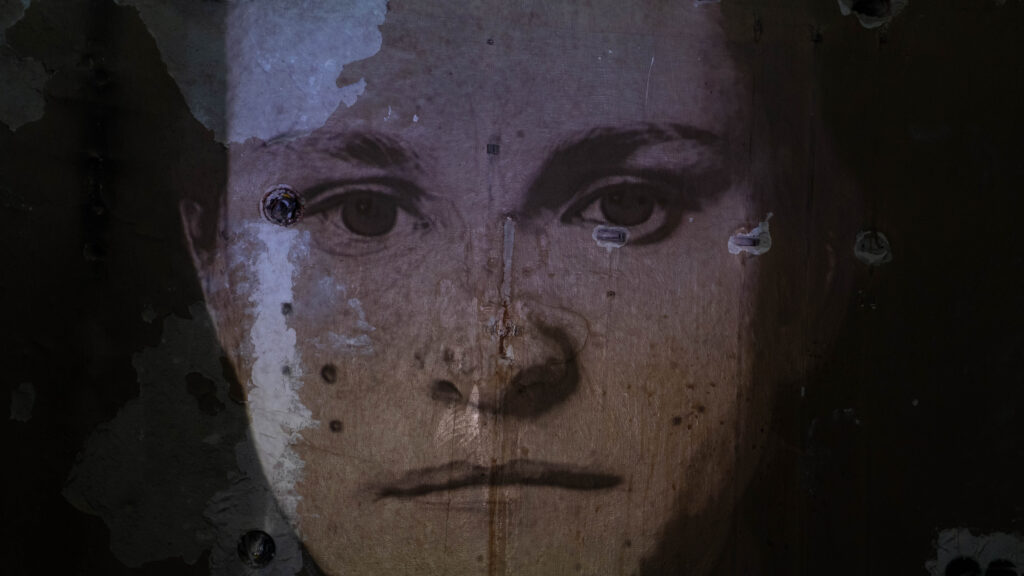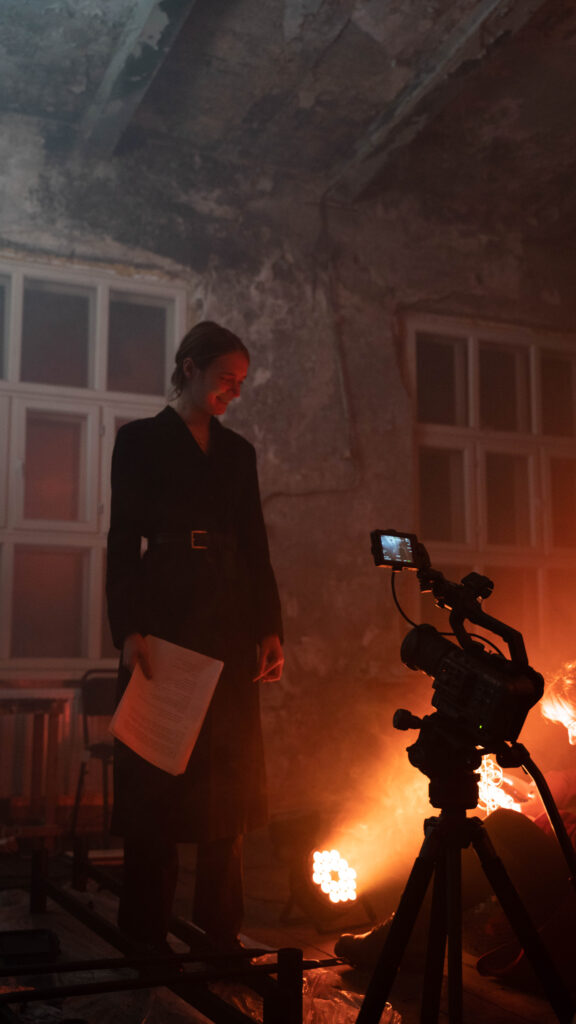PANDEMIC
|slider|





|slider|
During the COVID-19 pandemic the world has suddenly changed. Travel, office work, offline learning all became unavailable. Live theater became impossible along with that. Anxiety and uncertainty about the future grew hand in hand with the daily virus-caused death toll.
How to study this tragic and all the same unique moment for humanity? How to record these events at the personal history level? How to process as many stories as possible to convey the scope of it? These are the questions which bothered play director Sashko Brama during the lockdown. Then the idea arose to recourse to video diary format. This tool enabled access to different edges of the pandemic reality at the personal history level, while social contacts and movement remained limited.
That is how the project [WE] began, which later gave the name to the art group. Researcher, art critic and director Olena Apchel, communication managers Khrystyna Golovko and Oksana Kuyantseva joined the project. About 300 respondents of differing age and social position answered the project’s call and started to film their daily lives on phone video cameras, thus describing their personal experiences of the pandemic and isolation. They became the authors of documentaries about themselves and the reality around. The team provided respondents with instructions and recommendations for filming, and also processed and edited the received materials. These video diaries introduced plurality of reflections on everyday reality. It is important that the films did not posses a single perspective or style, dictated by the “director’s eye”, while the format of each diary was a reflection of the individuality and life circumstances of its author. The project team was included in the top 10 anti-crisis solutions for the Ukrainian cultural domain (within the Hackathon Hack the Culture program by House of Europe).
After the lockdown had been lifted and quarantine restrictions had been eased, the team continued to collect personal stories and experiences during the pandemic. This is when the scholar of culture and producer Liuda Batalova, as well as theatrical publicist and producer Mariia Yasinska joined the project. The artists used the video reports as a research tool and observed how the country suffered under fever caused not only by the new virus, but also by the dire polarization of society and avid ideological disputes between representatives of different social groups. By collecting a panorama of the new reality, the project’s authors attempted to document the everyday life of paramedics and doctors from coronavirus wards, the activities of the anti-vaccination movement leaders, actions of the leading volunteers and vaccination centers, and the lives of the most vulnerable segments of the population. They tried to read the pandemic not only as a biological or social phenomenon, but also as a media occurrence that reorders people and crafts new narratives and modern myths.
To process the collected materials artistically, the team organized a theater laboratory based in Lesya Ukrainka Lviv Drama Theater. Together with the actors, they created a video performance – an audiovisual poem about the pandemic. Artistic searches happened at an intersection of documentary theater, electronic music, video art and cinema. Here is a female figure clothed in black – this is a musician devised by the authors. She is alone in a large and empty theater, she plays meditative music in front of assembly hall without any spectators and reads her poem about loneliness and fragility to the tunes. The authors transform the theater into a metaverse, vintage walls and backstage spaces are given life: projections of actors appear on them to tell documental stories snapped by the authors outside the theater, in the turbulent pandemic world. The last monologue of the girl in black happens in absolute silence, the silence into which the actress dissolves. The performance ends.
The laboratory offered a framework within which other artistic experiments aimed at understanding the pandemic reality were supposed to be implemented, but on February 24, 2022, the laboratory’s activity ceased because of russia starting the full-scale war against Ukraine.
Quarantine diaries
Concept and direction – Sashko Brama, Olena Apchel
PR manager – Khrystyna Golovko
Reports
Directed by Sashko Brama, Maria Yasinska
Produced by Maria Yasinska, Liuda Batalova
Operators – Sashko Brama, Anastasia Yakymchuk
Management – Liuda Batalova
PR manager – Khrystyna Golovko
Communication manager – Oksana Kuyantseva
Design – Volodymyr Stetskovych
Technical designer – Volodymyr Palyanychka
Researcher – Olha Ilchenko
Theater laboratory
Texts – Mariia Yasinska, Liuda Batalova
Directed by Mariia Yasinska, Sashko Brama
Camera operator and video artist – Sashko Brama
Analytical support – Max Shumakher
Artists – Oksana Rossol, Oleksandr Serhienko
Music – Olha-Orysya Decyk, Yurii Shorobura
Actors – Victoria Potyago, Serhiy Lytvynenko, Nadiia Kalynyuk, Isabel Merkulova, Danylo Khromov, Anastasia Perets
Technical support – Volodymyr Fanta
With the support of the Ukrainian Cultural Fund, the Goethe-Institut in Ukraine, Lviv City Council.
Partners: Theater Festival “Close Strangers” (Poznan, Poland), Lesya Ukrainka Lviv Drama Theater, Ukrainian Institute, Ukrainian Catholic University.
